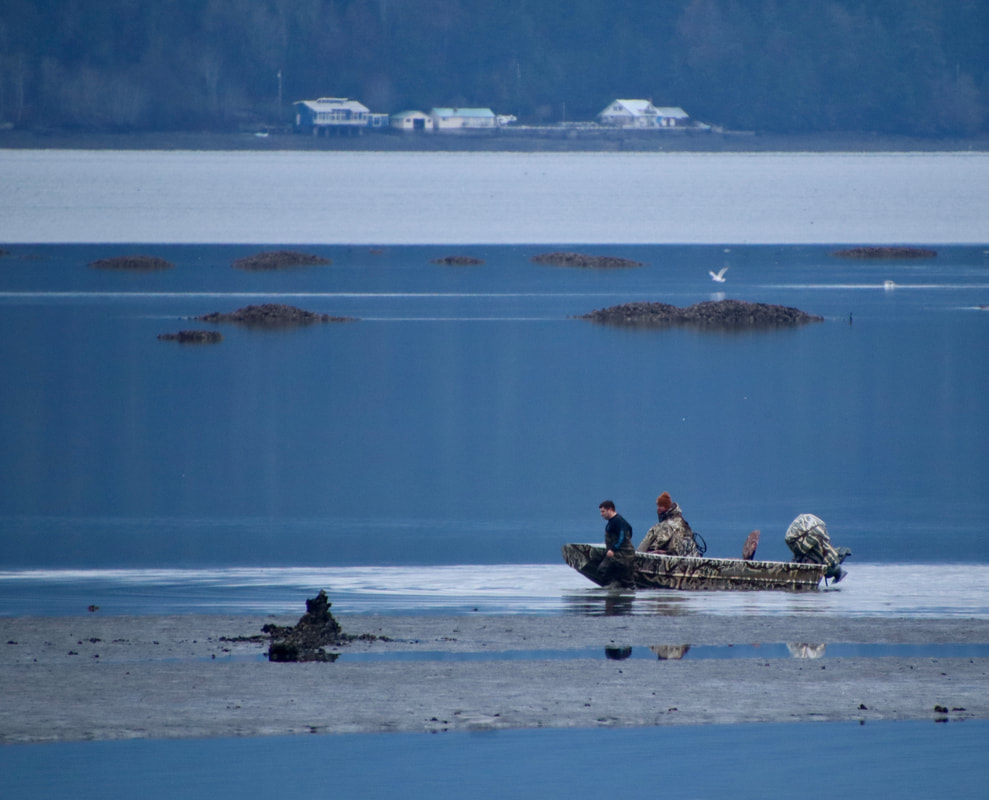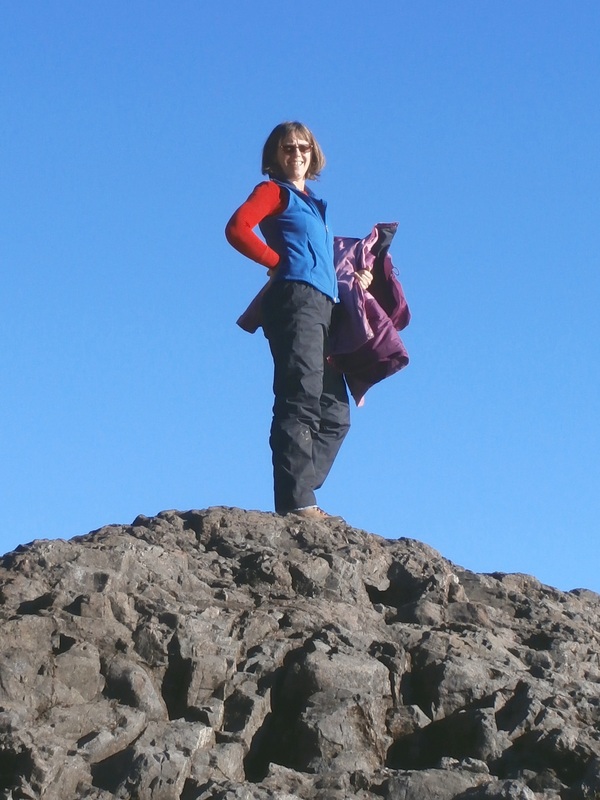|
A meditation on the gospel passage Mark 1: 14-20, for the community of St. David of Wales Episcopal Church, Shelton WA. January 24, 2021, the third Sunday of the Epiphany.
When I was about twelve and staying at my dad’s house for a week, I came down with the flu, and had nothing to do but lay in bed all day and read while he and my stepmom were at work. So I reached for the Readers’ Digest Condensed version of Tom Sawyer on the shelf in the guest room. I read every word in that edition, but I never read an unabridged version, and have no idea if I missed anything important to the story. For me, the Gospel of Mark is a little like that book on my dad’s shelf. When compared to the other gospels, Mark reads like a Readers’ Digest Condensed yet Urgent version. A “just the facts ma’am” account where the details of what happens are spare, and whatever occurs always happens immediately. As someone who wasn’t raised in a church, my first exposure to Bible stories came, when, as a new Christian and churchgoer, I began teaching Sunday school to first and second graders, relying on Cokesbury curriculum provided by the United Methodist church. I don’t remember now in which gospel I first encountered the story of these four fishermen being called to follow Jesus, but I do know that I, along with my little class, cut out construction paper fish with paper punched holes at the mouth, tossed them onto a butcher paper river on the floor and began to fish with poles consisting of pencils, string, and paper clip hooks. We were all surprised by Jesus, the bold stranger wandering by who called out for us to drop everything and follow him and start fishing for people. Startled though we were, we dropped our poles in the river, and marched out the classroom door following the student selected to play Jesus, who led us down the hall and toward the playground. And I will confess that in the almost 35 years since then, encountering the call story of those first disciples in all four gospels, I don’t remember comparing or compiling the stories into a larger narrative, or putting them on a timeline — though it’s entirely possible I did that in a year-long adult Disciple Bible Study class when my children were young, and their needs and lives were the focus of my life and learning. For me the Bible was full of impossible things that had happened: Moses being found in a basket in the river, Mary becoming pregnant with Jesus sans the usual method, Jesus rising from the dead and later appearing to his friends before he beamed up to heaven. Dropping everything to follow Jesus the second you’d met him seemed no less miraculous. Even in my own life, God had done what seemed impossible, pouring love over me one morning in my mid-twenties while I showered. God’s appearance had seemed sudden and out of the blue, as did my attendance at church the next Sunday, the first time I’d ever set foot in a church since childhood when I occasionally tagged along with friends or grandparents. But God didn’t really appear to me out of the blue. I’d been aware of the hole in my life even before my parents split up when I was nine; and I’d been trying to fill that void with friends, studies, sports, and later activism, work, and boys. In the months before my shower conversion, I’d begun to listen, rather than scoff and dismiss, when those I admired mentioned God, Jesus, and faith. And I’d even done a little reading, not the Bible, but some evangelistic pamphlets that came my way. All this to say, that when God showed up in my shower, I was ready to receive and respond. Maybe God had come by before and called and I’d been too busy with school or work or preoccupied with surviving yet another parental divorce to notice. Maybe those Sundays when I’d felt like an interloper at church, God had managed to leave behind tiny snippets of God’s word that lingered beneath my memories of feeling alone and outcast. I don’t know. But what I do know now, is that when Jesus shows up on the shores of Lake Galilee in today’s gospel reading and calls to Andrew and Simon, he is not a stranger appearing out of thin air making an outrageous request without context. Jesus knows Andrew and Simon. In fact, they have already been following him. In the first chapter of John’s gospel, we learn that Andrew was a disciple of John the Baptist’s, and when John announces that Jesus is the “Lamb of God” [John 1:36], Andrew goes to find his brother Simon, and says to him, “We have found the Messiah” [John 1:42]. At some point before John is arrested, Andrew and Simon return home and go back to work fishing. Perhaps they told Jesus they had to leave, or perhaps he told them go home to get things in order and said he’d come for them when the time was right. They’re still followers of Jesus, but they’re also attending to their livelihoods. As for James and John, they’re fishing with their father, Zebedee, alongside, or at least nearby, Andrew and Simon. Some scholars speculate that James and John were business partners with Zebedee and his sons, who also are successful enough to have hired workers on their boats. It’s entirely possible that they also were already acquainted with Jesus, and perhaps already following him. Other historians guess, based on the brief mentions in the gospels of women who are following and supporting Jesus’ ministry, that James and John were Jesus’s cousins; that their mother and Jesus’s mother Mary were sisters, and that they were well known to one another. Today’s scripture opens with Jesus beginning his public ministry, “After John was arrested, Jesus came to Galilee, proclaiming the good news of God, and saying, ‘The time is fulfilled, and the kingdom of God has come near; repent, and believe in the good news.’” It takes time, traveling through the region on foot, stopping every day to talk with people about change. The task at hand feels urgent, and it’s not something Jesus can do alone, so when he reaches the sea, he asks his fishermen friends to leave their jobs and follow him. He asks them to fish for people. To tell those they meet about God’s heart for the poor, about God’s desire for justice, about a God whose claim on your life is unlike an Emperor’s, it inspires but never demands allegiance. I don’t know about you, but knowing that there are relationships in place at the time of Jesus’s call to the fishermen offers me a sense of relief. The idea of leaving behind your entire life to say yes to the beckoning of a total stranger with a superhuman charismatic forcefield seems to be either an impossible to live up to act of faith and courage, or an absurdly foolhardy and dangerous endeavor. I couldn’t do it. I wouldn’t do it. But the idea of leaving your job, or of leaving your business in capable hands to commit your life to the cause of reconciliation and justice and the ushering forth of God’s kingdom on earth, a cause you’ve been thinking about, and dreaming about, in the company of a person who teaches, motivates, and inspires you to think and dream, that’s another matter. That’s an action I want to emulate. Dramatic. Emphatic. Urgent. Mark’s account of Jesus calling the first disciples is filled with these elements. Mark has an audience, and a purpose, and knows that time is of the essence. And yet, from our place more than two thousand years after these events, we need more than the origin stories of our faith — the gospel accounts of how Jesus’ ministry began and how it ended just three years later. We need more than the Acts of the Apostles and the letters sent to the earliest Christian communities as they formed and ministered and struggled. We need more than the stories of the saints and martyrs of yore. We need the ongoing stories of how we, as ordinary everyday people answer God’s call over sixty, or seventy, eighty, or ninety years. We need stories of how to repent from the values of culture and society that discount human dignity, how to repent from the worship of the church of Jesus, to the worship of Jesus, how to repent from nationalistic Christianity, to living aligned with Christ himself, how to repent from complacency with the status quo, to a sense of urgency and purpose when the kingdom that is near seems oh so long in coming. We need to learn to follow what Bishop Michael Curry terms, “The Way of Love.” His book Love Is the Way: Holding onto Hope in Troubled Times, tells his own story, and offers us some glimpses into the lives of those who have shaped his own faith, as well as thoughts on how keep ourselves rooted in the way of love. Some of you were born into the arms of faith, you were passed from pew to pew before you could walk, you knew Jesus loved you before you could talk. Some of you left church when you left home for work or college and returned a decade or more later. Some never left. Some never returned but still love Jesus. Some came stumbling to church from recovery programs. Some came after loss in the shadow of grief. Some came because their spouse did. Some came for their children. Some came for the music. Some came because of community outreach. Some came for no particular reason they can name. We’re all here for different reasons, but we’re looking, and maybe finding, something here that’s hard to find elsewhere. And in the sharing of our stories, our faith journeys, no matter how dramatic, no matter how mundane, we glimpse ways of being beyond our own experience, we develop relationships that reach beyond barriers, we come to trust one another and ourselves and we learn to see signs that point to God. So let us tell one another our stories. This is how we follow Jesus. This is how we fish for people.
0 Comments
Your comment will be posted after it is approved.
Leave a Reply. |
I began blogging about "This or Something Better" in 2011 when my husband and I were discerning what came next in our lives, which turned out to be relocating to Puget Sound from our Native California. My older posts can be found here.
Categories
All
Archives
September 2023
Newsletters |

